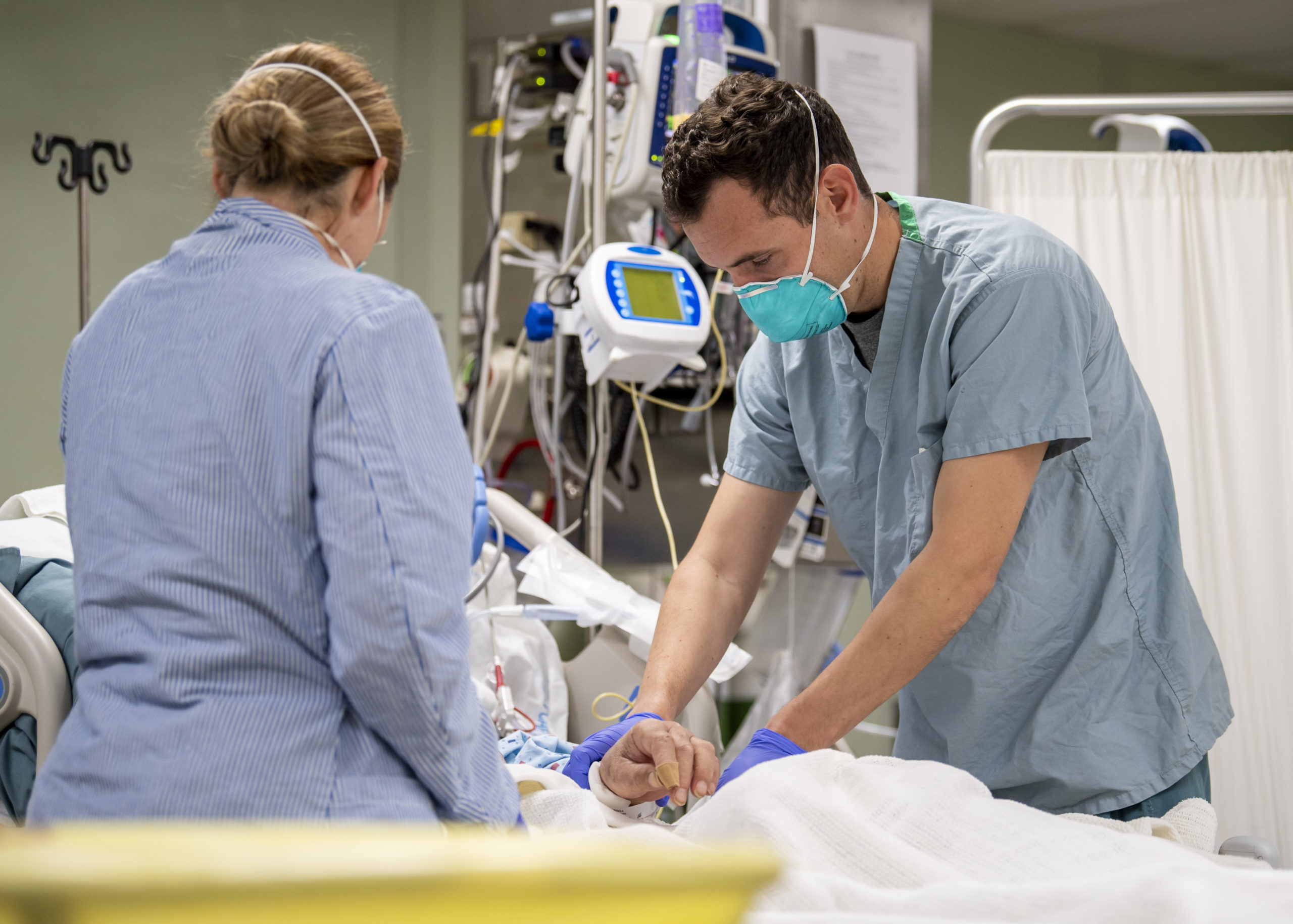ProPublica is a Pulitzer Prize-winning investigative newsroom. Sign up for The Big Story newsletter to receive stories like this one in your inbox.
As New York City strains under COVID-19 cases and health care workers scramble for every bit of equipment they can get, hospitals are starting to look less like part of a wealthy country’s medical system and more like the makeshift clinics in disaster zones or the developing world. In those places, experts say, doctors need to think about care differently: managing resources to best serve all the patients who will need help over the duration of a crisis, even if it means not being able to save every person to walk through the door.
Dr. Sean Runnels is an associate professor at University of Utah Health and a working anesthesiologist who manages the supply room for his department. The wave of coronavirus cases hasn’t really hit yet in Salt Lake City, but he’s been stocking up on as much equipment as he thinks will be needed for sedating patients if they need to go on ventilators. Already, Runnels says he’s noticed normal supply ordering patterns breaking down, as hospital administrators working from home try to prepare for a potential flood of COVID-19 patients.
What’s happening in cities overwhelmed with COVID-19 cases reminds him of the year he spent based in Guinea working for Mercy Ships, a nonprofit that deploys floating hospitals to African countries with little surgical capacity, and the subsequent two years he spent in Rwanda training clinicians. We talked about what American cities in the throes of the coronavirus epidemic could learn from places with far less developed hospital systems in times of crisis, and came away with three main points.
This interview has been edited and condensed for clarity.
You need more than a ventilator to save someone’s life.
I worked for three years in Africa and really came to appreciate how complex an ICU is. You’ve got the ventilators, that’s the thing that you can see. But all the little pieces have to be sourced, someone has to clean it, someone has to order the cleaning solution, someone’s got to write the protocol to train the person that cleans it. It’s this really complex ecosystem, and each of the pieces of the ecosystem are required for the thing to work. Everyone’s focused on producing more ventilators, but the real capacity is the smallest thing in that ecosystem.
I worked for Mercy Ships, and we would get donations of all sorts of stuff, but if we got a donation of an odd-sized tube that doesn’t hook to our anesthesia circuits, it’s just stuff we have to move around. That’s something I’ve taken to heart with our system. If we start sourcing from all over the place, we’ll just create more chaos. I think we’re better off trying to strengthen our normal supply chains. If we get overloaded while the chains are weak, that’s a problem.
You are only viable if your health care workers are healthy.
Running medical systems in under-resourced environments is completely different. In some sense it would be better to have the health minister for Rwanda, Agnes Binagwaho, come show us what to do, because they were very intentional about capacity. I was never allowed to walk into a room and examine a patient unless I had gloves on. If we didn’t have gloves that day, we didn’t have a clinic. They completely understood that the real risk was to get your providers sick, because they’re actually the system. The machines and drugs and everything we do, they enable all of those things to work. As soon as you take out your providers, then you end up in a death spiral. You and your mortality jumps from 1% to 10%.
If you’ve got 200 ventilators, but you only have enough personal protective equipment to keep enough providers well to take care of 100 ventilators, then that’s your capacity. If you exceed it, you end up with these horrific rates of sickness. And then you end up with morale problems, and the system works less efficiently because those teams are now broken up.
The rule No. 1 in a resource-constrained system is keep your providers healthy.
Sometimes you have to make a decision to give up on a patient for the greater good of the system. And that’s hard.
When I was in Rwanda, I ran an anesthesia department and took care of keeping the system safe for the new American providers for the first three months before they knew what they were doing. You would say: “OK, I know in America we can save this child. But [here] if we try to deliver medical care, are we just prolonging the suffering and depleting resources?” I would have people turn around and visualize the 10,000 babies that were coming in the next few years, and say, “All right, I’ve got to balance this life in front of me with the lives of those that are coming.”
The shift internally they have to go through is from that heroic archetype of the doctor-patient relationship to “my most important relationship is to my colleagues and the system because that’s what’s going to take care of these people in the future.”
I went through it in Africa. It’s an incredibly painful experience, and there’s no road map for it. The worst thing you can have to do as a doctor is going to be not do everything for the patient in front of you. And yet that’s exactly what you have to do.



















